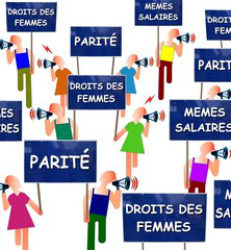Compliance: at the moment
June 25, 2021
Compliance: at the moment

►Under the scientific direction of Professor Emmanuelle Claudel, the French Association Droit et Commerce devotes its annual conference to ➡️📅 "La concurrence dans tous ses états". In her introduction retracing the entire evolution of this Law, Emmanuelle Claudel underlined that competition Law takes a distance from its basic concepts, such as the notion of "market". The branch of Law is finding more and more points of contact with Regulatory and Compliance Law.
____
In fact, in an economic and social system whose organization needs to be readjusted, the notion of “chain" must find its rightful place in conjunction with the notion of "market". For many objects, it is relevant to think not only in terms of "market" but in terms of chains. Indeed the "chain" gives consistency to the object itself. For example forests or food, as European Commission did (I).
But looking more concretely at the economic space, directly seeing people and things, such as agricultural products and what they are used for, that is to say to feed human beings, then this "Monumental Goal" must be entrusted to Crucial Entreprises the task of achieving it (II). Compliance Law can in the future caring of this, by setting new obligations, but also by loosening the so violent relationship, by its very indifference, between competition and food products.
I. NO LONGER THINK ONLY IN TERMS OF "MARKETS" BUT IN TERMS OF CHAIN: THE EXAMPLE FROM THE FARM TO THE FORK
We are starting to assert this for the forest but also for agriculture that the European Commission now connects with food. So food should not be seen simply as a succession of "markets". In fact, if we only conceive them in this way, the agricultural markets, which should benefit from the financing offered by financial markets, are sometimes grabbed by them, which can literally starve the world rather than helping to feed it.
Today, we agree to think about agriculture as a "chain" and, as the European Commission writes: From farm to fork. Indeed if agriculture is an important "sector" it is because it allows to feed the population. This basic fact has often been forgotten, in particular because competition Law, based on trade in products and not on the products themselves (of which it only measures the substituability, to identify the relevant markets) is not interested in what things are made for. We should not blame it, but in return, it cannot claim to dominate everything, since it is only pertinent for this small part of our life.
European Commission, which is emerging more and more from the neutral notion of the market to move towards the substantive notions of products and of what they are made for, of their results (happy or unhappy), is in the process of setting up an industrial policy and what could be a real agricultural policy, which is not made only of subsidies.
It consists in saying that it is necessary to design a chain which starts from the soil, its agricultural and livestock use to achieve what it is for: feeding the population.
It seems simple, but in a Law dominated by the sole Competition Law, which fought for example by the techniques of price support, it is a new way, because it is concrete, to conceive.
But how to do it ?
Because Economy does not necessarily have to be administered, Compliance Law can be of great help, especially through the wholesale markets.
II. INTERNALIZING THE MONUMENTAL GOALS OF AGRICULTURAL SECTORS IN THEIR CRUCIAL ENTERPRISES
Rather than administering the sectors, it is advisable to internalize in crucial companies the Monumental Goals which concern the future of the social group, for example feeding the population.
It is for this reason that we must conceive "wholesale markets", not only as does Competition Law, which qualifies them as markets between the producers and the resellers, but as companies which are, within vital chains, are in charge of supervising the link between upstream and downstream so that the goal is realized.
This is why these companies are directly concerned by Compliance Law, in its not mechanical definition of Compliance with the legal requirements applicable to them (which is our obligation to all) but in its definition which puts Compliance as something beyond Competition Law (➡️📝Frison-Roche, M.-A., Competition Law and Compliance Law, 2018)
Wholesale markets for food therefore have a decisive role to play, as demonstrated by the French Rungis market company which, during the time of the health crisis, helped to ensure the continuity of supply (see more generally Journal of Regulation & Compliance (JoRC) and Montpellier University, ➡️📅colloquium Public Norms and Compliance in times of crisis: monumental goals put to the test, contributions serving as a basis for a chapter in ➡️📘Compliance Monumental Goals, 2022).
The internalization of these Goals in Companies resolves the aporia with which States are confronted in their intimacy with the notion of borders.
Indeed, il is useful to adopt a definition of "wholesale markets" no longer through the definition of the "market" but through the definition of "the crucial enterprise", which is itself "regulated" (Frison- Roche, M.-A., ➡️📝The Crucial Companies and their Regulation, 2014).
"Wholesale markets" are businesses where retailers go to get their supplies every day, remembering what the market place was like, remembering the time when the market is the place where human beings met, where the exchanges were not between capital and commodities but between people (Supiot, A., ➡️📕Mondialisation ou Globalisation, 2019).
These companies are grouped together in a global association: the World Union of Wholesale Markets. For wholesale companies, it is a question of coming together to ensure that the chains operate from soil maintenance to the mouths of human beings.
Because it is so difficult to find a World Regulator which is at the same time legitimate and effective in agricultural matters.
It is possible that a public regulator is more legitimate but it is for the moment impossible to establish worldwide (see generally ➡️📕Collart-Dutilleul, Fr. and Le Dolley, E., ed., Droit, économie et marchés de matières premières agricoles, 2013).
Therefore, an alliance between the political authorities, which care about public health and crucial companies, of which these "wholesale markets" are an example, by "Compliance Obligations" thus understood, is a concrete prospect.
This then results in an obligation and a power of Vigilance and coordination, which can already be found in banking (a sector where Compliance Law is more mature than elsewhere) which must develop, rather than being the object of the segmentation that, by nature, traditional Competition Law generates, market by market, market against market.
______
► subscribe to the French Newsletter MaFR ComplianceTech®
June 24, 2021
Compliance: at the moment

► Compliance Law is above all a Time Management. This is why it is located in Ex Ante, before disasters happen, with the goal that they do not happen, to intervene at least on time to break the domino effect. This is why the achievement of Monumental Goals has been internalized in companies, this achievement being until now States’ affair. This does not mean that Ex Post is irrelevant. Especially because when the Ex Post entities are the most legitimate. It is the case of Judges. What has just happened to Rudy Giuliani illustrates this perfectly.
____
On June 24, 2021, the Supreme Court of the State of New York published its decision concerning Rudy Giuliani (➡️⚖️Supreme Court of the State of New York Appellate Division, First Judicial Department, June 24, 2021, Giuliani)
Rudy Giuliani, who was federal prosecutor, then mayor of New York, then counsel to President Donald Trump, then lawyer was sentenced to the provisional suspension of his professional license in the State of New York (➡️📝New York Times, Court Suspends Giuliani's Law License, citing Trump Election lies, June 24, 2021).
The judgment evokes the insurrectionary events in the Capitol and relies on an ethics committee for the conduct that lawyers must have. First the convergence is remarkable in the motivation between the decisions made by Facebook with regard to Donald Trump, the professional structure to which Rudy Giuliani belongs and the decision of the state court (I).
The articulation is rather done in time (II). First of all, the company which intervenes as quickly as possible, because it is necessary to act (but for acting, it is also necessary to "judge", even if the entity is not a tribunal ...); then the profession (and here the person concerned belongs to a regulated profession but it is indeed in the name of "the general public interest" that the sanction will be pronounced), nothing that can escape the in fine validation or questioning of the Judge.
I. The articulation of the substantive principles implemented by the Company, the Jurisdiction and the Professional Regulator
In a Rule of Law, fundamental principles are the same for subjects of Law (companies being subjects of Law like others), intermediary bodies (like professional orders), jurisdictions and States.
In a Rule of Law, Truth is elementally kept by Law and Disinformation is sanctioned.
Thus, even if the power of Freedom of Speech in the United States has a constitutional power unlike any other, since "disinformation" is not sanctioned as such, the legal path of defamation action makes it possible to obtain protection against practices of massive disinformation.
Even if historians have worried about the paradoxical weakness of the United States because of its legal system (see 💻Snyder, T., The State of Our Democracy, 2021) Harvard Law professors have intervened to explain that no one could say everything, defamation action allowing a reaction.
This is the path that was used in January 2021 against Rudy Giuliani (➡️📝New York Times, Rudy Giuliani sued by Dominion Voting Systems over False Election Claims, May 4, 2021) for having unleashed a viral campaign of disinformation about what was presented as an incorrect result during the presidential election.
It is therefore "disinformation" which is sanctioned.
It was also prevented by systemic digital companies such as Google, Twitter, Facebook and Instagram, which disabled Donald Trump’s accounts, the other actor.
But besides, Rudy Giuliani is a lawyer.
As such, what he does engages the honor of his profession. It is therefore intended to be the subject of disciplinary procedures.
This is why the jurisdiction of the State of New York took advice from an "ethics committee".
In particular with regard to the conclusions of the latter, the state jurisdiction declared that the false statements "tarnished the entire reputation of the legal profession". This justified his suspension in New York State. This suspension is temporary (disciplinary procedures will begin).
But on the other hand, the Court considers that the deontologically objectionable conduct "directly" increased the tensions which led to the violence of the events in the Capitol.
By taking such a justification, the Court operates the junction on the one hand with the other character that Rudy Giuliani advised, Donald Trump, but especially with the decision taken by the private companies, which suspended Donald Trump’s accounts.
Thus, in the name of the same principles, Public Order and respect for Truth, the Court by connecting, through its motivation, Companies - which had acted before - and Disciplinary Body which will intervene afterwards, has shown the coherence of the American legal system.
II. The articulation over time between crucial companies, jurisdictions and professions
The difficulty comes rather from the articulation in time.
Indeed, in this Donald Trump’s case who, in particular legally advised by Rudy Giuliani, affirmed that the elections had been stolen, which contributed to a start of insurgency and riots in Capitol, the question is the reaction time and the modality of reaction.
The first type of bodies which react were systemic digital companies: Google, Twitter, Facebook.
The modality was the deletion of Donald Trump's accounts, with the justification for inciting destabilization and civil war.
Controlling "hate speech", in Europe in name of Law, in the United States in name of Corporate Social Responsibility (CSR).
Therefore, the company is therefore instituted "Judge and prosecutor of itself" by Compliance Law, because it is in position to act at the right time, that is to say immediately (see ➡️📅 the colloquium, co-organized by the Journal of Regulation & Compliance and Lyon 3 University, The Firm instituted as Judge and Prosecutor of itself, Compliance Juridictionnalization, 2021).
It is remarkable that, despite all the criticisms that can legitimately be made of it (see eg Heymann, J., La nature juridique de la "Cour suprême" de Facebook" (The legal nature of the "so-called" Supreme Court of Facebook), in The Firm instituted as Judge and Prosecutor of itself, already quoted above.) this jurisdictionalization works, as soon as the procedural principles are respected (see ➡️📝Frison-Roche, M.-A., The judge-judged: articulating words and things in face of the impossible conflict of interests, in ➡️📕Compliance Juridictionnalization, 2022).
But in fine, the decision is always to come back to the Courts and systems depend above all on the probity of people, who are most firmly anchored in "professions".
What is remarkable in the present case is that we could "wait" for the time of justice, because the sanction of the adviser - and his neutralization by a ban to practice - is less urgent than the neutralization of Donald Trump on social networks. Their power as an "influencer” is not the same.
It is however remarkable that if the court took care to rely on the opinion of an "ethics committee", it did not wait for the disciplinary sanction itself.
This will come later.
Justice itself, above all sensitive to time, therefore pronounced in advance: a "provisional" suspension. In the same way that it has often been said that closing an account in the digital space was a capital punishment, one can consider that a professional suspension was, even in "temporary" form, a capital punishment for a professional.
We can see here that Professions, here the profession of attorney, are central to Compliance mechanisms. Indeed, the more States are weakened by their natural relationship with the “border”, the more the technical notion of “Profession”, which does not have this natural relationship, will have to be developed.
However, supervised by the Judge, a Profession has ethics at its heart. The same that the Judge, in anticipation, took as a basis to sanction for the future the adviser of a president immediately dismissed by the systemic company.
So as long as crucial businesses, professional and jurisdictional structures adjust in substance, adjustment over time can work, by anticipation and feedback.
____
June 23, 2021
Compliance: at the moment

► Compliance and proof; The company can force employees to return to work. It's way to control. The American Federal Health Agency has confirmed its "right" to require them to be vaccinated to do so, because they thus relay the general health policy. But how can companies monitor the effectiveness of these vaccinations? Because when the company thus becomes "prosecutor and judge" of its employees under Regulation Law (health in this case), there are probative questions that arise.
On May 28, 2021, the American federal agency The US Equal Employment Opportunity Commission - EEOC released a statement on whether employers can compel their employers to be back onsite (➡️📝EEOC Issues Updated Covid-19 Technical Assistance. Provided Additional Information on Vaccination, May 28, 2021).
If the New York Times immediately concluded that companies can immediately bring everyone back (➡️📝New York Times, Employers can require workers to get Covid-19 vaccine, US says, June 16, 2021), the Regulatory Agency is more nuanced because it follows the Anglo-American "balance of rights" method.
And the difficulty will probably lie rather in the probative question ...
I. SUBSTANTIAL DEBATE ON THE BALANCE BETWEEN RIGHTS AND FREEDOMS
The first question is about this debate between “rights and responsibilities” of each other.
On the method, first of all: it is a British and American way which consists in balancing: here the "right" of the company to organize as it wants its operation, here conceived rather like a "right" taken from the employment contract, rather than as a unilateral disciplinary power. We know that legal traditions diverge on this essential point.
On June 10, 2021, BBC News relays the order in this direction from Goldman Sachs bank, on the managerial basis that teleworking for everyone would be an "aberration". It therefore expresses its power to organize the company, expressed moreover in a non-public note (➡️📻BBC News, "Goldman bankers ordered to report vaccine status before office return", June 10, 2021).
But it is in terms of balancing subjective rights that a British academic, quoted by the BBC, analyzes the situation: "Vaccinations create a conflict of legal protections, where the freedom of individual choice is weighed against the health and safety of others. "
"Some employees may have a justifiable reason for not wanting to take the vaccine, and we would always urge employers to discuss an employee's reluctance, whether it be related to a disability or religious reasons.".
As soon as we see Compliance through the contract, the analysis takes its foundations.
But the most important debate will be probative.
II. FORTHCOMING PROBATORY DEBATE ON THE EFFECTIVENESS OF VACCINATION
How can we make sure that people are actually vaccinated?
Companies can organize the vaccination themselves.
But people presenting certifications, the risk is great of falsified certifications. The difficulty is already encountered for crossing borders or entering public places, providers of falsified certifications immediately proliferating.
The stake is therefore the pre-constitution of reliable evidence (on the "probationary culture", inseparable from the "Compliance culture", ➡️📝 see Frison-Roche, M.-A., Training: content and container of Compliance Law, in ➡️📘Compliance Tools, 2021).
However, in Law, preconstituted proofs are more "legal proofs" (which do not have for goal truth but rather security and commitment) while the truth of a fact is freely proven Ex Post. This is here the Ex Ante proof of a fact (the vaccine).
The question of "trusted third parties" (and its dark double that is the falsifier) is at the heart of Compliance Law. As he or she manages the detection of risks and the prevention of crises to protect people, the construction of a reliable system, that is to say probative is central.
Proof of vaccinations is just a first example. However, it is up to companies to build this evidence. To design them structurally? To bear the cost?
Undoubtedly yes, since this power exercised over others is conferred so that companies perform their Compliance obligations.
June 22, 2021
Compliance: at the moment
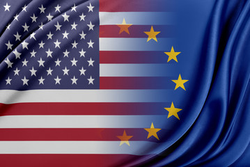
►Timothy Snyder, an American scholar specialized in 20th century European history, particularly World War II, expressed his concern about the relationship between the United States and technology, when technology helps people to take power in democratic political systems (💻Snyder, T. The stage of Our Democracy, February 2021). He calls in particular Law to stem this new and disastrous alliance.
During this online conference, Timothy Snyder, worried about the future of Democracy in the United States, stressed that one of the weaknesses of this country lies in its lack of legal instruments to stem fake news that are spreading on platforms, observing that while the United States use the force of Antitrust Law, Europe has on the contrary equipped itself with legal instruments to directly counter what could bring down the American democratic institutions, in particular the mechanism of "disinformation" or "hate speeches", immune to Competition Law.
So let's follow Timothy Snyder's look at the European continent.
The various European countries do this by adopting, one after the other, specific legislation to counter and prevent disinformation and hate speeches. After France and Germany, which were the first countries to do so, it is Italy which took the plunge.
Yes, this is happening in all Member States to directly fight against disinformation (Italy will follow France and Germany (➡️📝British Association of Comparative Law, Italy's Fight against fake news, 2021)).
Europe, which remains liberal but wants to be sovereign, is in the process of building, in balance with the pillar of Competition, the autonomous and articulated pillar of Compliance to protect people against these mechanisms of disinformation and the spread of hate speeches which can sweep away democracies.
Europe is well placed to do so since it can relies on its humanist tradition to build a Compliance Law which targets above all human beings and not free competition and competitive dynamism (➡️📝Frison-Roche, M.-A., What can Compliance Law build relying on the European humanist tradition, 2019).
Europe is thus able to build "Internet governance" through Compliance Law (➡️📓Frison-Roche, M.-A., The contribution of Compliance Law to Internet Governance, 2020 ).
Europe is doing it through texts under discussion. The European Commission is writing three texts. One to ensure competitive dynamism: the 📜Digital Markets Act. Another to govern digital contents: the 📜Digital Services Act. And finally another to enable European companies to take joint initiatives supervised by the European Authorities: the 📜Data Governance Act.
The last two texts fall under Compliance Law, conceived as follows: they lead to a sovereign Europe (see for example ➡️📝Tardieu, H. Data Sovereignty and Compliance, in ➡️📕Compliance Tools, 2021).
________
June 21, 2021
Compliance: at the moment

► It is in its "Risk and Compliance" section that the Wall Street Journal, by its article of June 18, 2021 (➡️📝Europe's Chief Prosecutor Has 300 Cases on Her Plate Already), presents the first steps of the European Public Prosecutor’s Office, since June 1, 2021.
This inclusion presupposes that it is through a Compliance Law perspective that this new body must be understood, in order to understand and anticipate its action.
►In this perspective :
➡️📧Frison-Roche, M.-A., European Public Prosecutor's Office comes on stage: the company having itself become a private prosecutor, are we going towards an alliance of all prosecutors?, June 2, 2021
➡️ 💬Frison-Roche, « Le parquet européen est un apport considérable au Droit de la Compliance » (“The European Public Prosecutor's Office is a remarkable contribution to Compliance Law"), June 14, 2021
I. AN ACTION THAT WILL FOCUS ON FIGHTING THE MEANS USED TO DAMAGE THE FINANCIAL INTERESTS OF THE EUROPEAN UNION
The article of the Wall Street Journal takes the form of an interview with the European Prosecutor. Her responses also confirm the consubstantial link between European Public Prosecutor's Office and Compliance Law.
It is remarkable that she immediately says that she hopes the treatment of many cases, especially on healthcare and infrastructure sectors: "Our expectation is to have more cases, especially in the healthcare system, in public procurement, infrastructure, and also in agriculture ".
However, the 2017 European Regulation which established the European Public Prosecutor’s Office said that its "mandate" is to prosecute offenses affecting the "financial interests of the European Union", without being hampered by the cumbersome procedures for cooperation between States while these offenses are most often cross-border.
But one could think that, knowingly taking the means (corruption, money laundering) for the goal, the European Public Prosecutor's Office would immediately pursue not only the defense of the financial interests of the Union (admittedly financial interests damaged by corruption or money laundering) but these facts themselves: thus the European Public Prosecutor's Office works with the European Supervisory Authorities, in particular banking and financial authorities, which fight in Ex Ante against these offenses and prevent them.
II. AN ACTION THAT FOCUSES ON SECTORS NOT LEGALLY REGULATED IN EX ANTE BY SECTORAL REGULATORY AUTHORITIES
Moreover, it will be noted that the European Prosecutor is targeting three economic sectors which are not "regulated sectors" in the legal sense of the qualification, that is to say not monitored by a sectoral Regulatory and/or Supervision Authority: Health, Infrastructure and Agriculture.
Thus, the power of Regulatory Law, which relies in its Ex Ante, and its weakness, which derives from the pre-required existence of a sectoral Authority, is compensated: the action of the Public Prosecutor's Office is not limited to legally regulated sectors.
While Competition Authorities are mandated (➡️📅La concurrence dans tous ses états, June 25 and 26, 2021) to protect the competitive functioning of the markets, a Public Prosecutor's Office can deal with any infringement without having to determine a market.
For instance, Infrastructures don't constitute pertinent markets but can constitute fields for criminal activities, such as corruption or money laundering, justifying Compliance Law mechanisms.
What the new European Prosecutor is aiming for, namely Health, Infrastructures and Agriculture, have undoubtedly been damaged both by the sole primacy of the Competition perspective and by a Criminal Law constrained by the difficult inter-State cooperation, even though they are not subject to a supranational Ex Ante Regulation.
The European Public Prosecutor's Office aims to directly improve this, through Entreprises acting in Health, Infrastructures and Agriculture.
_________
June 18, 2021
Compliance: at the moment

► Law is slow, but firm. By its judgment of June 15, 2021, Facebook , the European Union Court of Justice widely interprets the powers of National Authorities, since they serve the people protection in the digital space (➡️📝(CJEU, June 15, 2021, Facebook).
Law is slow. The reproach is so often made. But the bottom line is that, in the noise of changing regulations, it establishes clear and firm principles, letting everyone know what to stand for. The more the world is changing, the more Law is required.
When Law degenerates into regulations, then it is up to the Judge to make Law. "Supreme Courts" appear, de jure as in the United States, de facto as in the European Union by the Court of Justice of the European Union which lays down the principles, before everyone else, as it did for the "right to be forgotten" in 2014 (➡️📝CJEU, Google Spain, May 13, 2014), and then with the impossibility of transferring data to third countries without the consent of the people concerned (➡️📝CJEU, Schrems, October 6, 2015).
Facebook litigation is kind of a novel. The company knows that it is above all to the Courts that it speaks. In Europe, it is doing it behind the walls of the Irish legal space, from which it would like to be able not to leave before better dominating the global digital space, while national regulatory authorities want to take it to protect citizens.
There is therefore a technical question of "jurisdictional competence". The texts have provided for this, but Law is clumsy because it was designed for a world still anchored in the ground: the GDPR of 2016 therefore organizes cooperation between national regulatory authorities through a "one-stop-shop", forcing the authorities to relinquish jurisdiction so that the case is only handled by the "lead" National Authority. This avoids splintering and contradiction. But before the adoption of the GDPR, the Belgian data protection regulator had opened a procedure against Facebook concerning cookies. The "one-stop-shop" mechanism, introduced in 2016, is therefore only mentioned before the Brussels Court of Appeal, which is asked to relinquish jurisdiction in favor of the Irish Regulatory Authority, since the company has in Europe its head office in this country. The Court of Appeal referred to the CJEU for a preliminary ruling.
By its judgment of June 15, 2021 (➡️📝CJUE, Facebook, June 15, 2021), it follows the conclusions of its Advocate General and maintains the jurisdiction of the Belgian National Regulator because, even after the GDPR, the case still undergoes national treatment. In this decision, the most important is its reasoning and the principle adopted. The Court notes that the "one-stop-shop" rule is not absolute and that the national regulatory authority has the power to maintain its jurisdiction, in particular if cooperation between national authorities is difficult.
Even more, will it not one day have to adjust Law more radically? We need to consider the fact that the digital space is not bound by borders and that the ambition of "cross-border cooperation" is ill-suited. It is of course on this observation of inefficiency, consubstantial with the digital space, that the European Public Prosecutor's Office (EPPO) was designed and set up, which is not a cooperation, nor a "one-stop shop", but a body of the Union, acting locally for the Union, directly linked to Compliance concerns (➡️📝Frison-Roche, M.-A. "The European Public Prosecutor's Office is a considerable contribution to Compliance Law", 2021 and ., European Public Prosecutor's Office comes on stage: the company having itself become a private prosecutor, are we going towards an alliance of all prosecutors ?, 2021).
So that's what we should be inspired by.
June 17, 2021
Compliance: at the moment

► Compliance Law and Competition: for building, is it necessary to legislate ? Example of quasi-public interest judicial agreement: the French Competition Authority's Statement of June 3, 2021 on Facebook
The French law so-called "Sapin 2" of 2016, organized the "convention judiciaire d’intérêt public - CJIP" (Public Interest Judicial Agreement) which allows the prosecutor to undertake not to prosecute a company in returns for this company's commitments for the future. Is this mechanism reserved for this law, which only concerns corruption and bribery? The answer is often positive.
Is it so obvious?
Since the entity having the power to prosecute therefore always has the power not to prosecute. As the company always has the freedom to make commitments for the future. And everything stops.
News in Competition Law illustrate this. On June 9, 2021, as part of a transaction, the Autorité de la concurrence (French Competition Authority) sanctions Google (➡️📝 Communiqué of the Autorité de la Concurrence , translated in English by the French Competition Authority) , which has not contested the facts, for abuse of dominant position for having privileged its services in the online advertising services. Similar facts were alleged against Facebook. But on June 3, 2021, the Autorité de la concurrence (French Competition Authority) published a "communiqué de presse" (➡️📝statement translated in English by the French Competition Authority) saying that Facebook has, during the investigation, proposed commitments regarding its future behavior. It is remarkable that this statement on Facebook is published as an “acte de régulation” (regulatory act).
Yes, it is indeed an regulatory act about the future and structuring the online advertising area, internalized in this company which engages itself in its future behavior. With its statement, the Competition Authority invites the “acteurs du secteur” (actors of this sector) to make observations, for the development of what will be a sort of compliance program.
In these negotiations which are akin to a game table, where everyone calculates without knowing if they enter into a negotiation or a confrontation, the first game assuming that one shows more cards than in the second, it is indeed towards a kind of Public Interest Judicial Agreement that they are going with a Competition Authority which is both Judge and Prosecutor, concludes the agreement and, through a later decision, gives it force. Under the various legal qualifications, it is indeed the same general mechanism of Compliance Law, well beyond the specific French law known as Sapin 2.
Managed in this way, Compliance Law being an Ex Ante corpus, transforms the Competition Authority, an Ex Post Authority, into an Ex Ante Authority, openly taking "acte de régulation" (Regulatory Act), and allows it to rely on the power of companies, thus “committed”, to structure markets, which are however not regulated. Like advertising or retailing areas (➡️📝see Frison-Roche, M.-A., From Competition Law to Compliance Law: Example of French Competition Authority's decision on central purchasing body in mass distribution, 2020).
Thus Compliance Law has achieved the autonomy of Regulatory Law with regards to the notion, which nevertheless seemed intimate to it, of "sector".
June 16, 2021
Compliance: at the moment

► Compliance Law is essential for the future of Africa: this is also a lesson from the Juin 2021 G7 Summit in its Infrastructure Plan.
It emerges from the G7 summit which ends on June 13, 2021 in Carbis Bay in the United Kingdom, a common desire to increase infrastructures in Africa, in itself and because otherwise China will do it, and will do it differently.
Compliance Law will be determinant in this common action for three reasons.
First and because the issue is about infrastructures, the construction and the management of infrastructures falling more under Regulatory Law than Competition Law (📕Chevalier, J.-M., Frison-Roche, M.-A, Keppler, J.EPPLER, J.H. et Noumba, P. (ed.), Économie et droit de la régulation des infrastructures. Perspectives des pays en voie de développement, 2009). However, Compliance Law is not a simple process for the effectiveness of rules which are external to it, it is the extension in companies of Regulatory Law. Where companies must implement regulatory goals within themselves, they develop Compliance rules (➡️📝see Frison-Roche, M.A., From Regulation Law to Compliance Law, 2017.
Secondly and because the issue is about Africa, the Rule of Law is sometimes not very solid there. By internalizing Regulatory Law in companies (or even by associating Arbitration with it), Compliance Law makes it possible to get out of this dead end (➡️📝Salah, MM, Conception and Application of Compliance in Africa, in 📕 Frison-Roche, M.-A. (ed.), Compliance Tools, 2021.
Thirdly and because the topic si about China, Compliance Law in its European conception has the Monumental Goal of defending individuals while in its Chinese conception it aims to obtain their obedience to the rules (➡️📝Frison-Roche, M.-A., In China, Compliance Law deploys without, and even against democracy, China seeing Compliance only as an "efficiency process"; in Europe, it deploys with and even for democracy, 2021). On construction sites and in the human management of infrastructures, this changes everything.
G7 members share the first conception.
They must now implement it by their companies and thanks to them, private sector being in alliance with the political authorities which just expressed. Because Compliance Law is an alliance between political authorities and crucial economic operators.
June 15, 2021
Compliance: at the moment

► Money Laundering, Cryptocurrency and the Art of Saying It: the Financial Conduct Authority (FCA) statement of June 3, 2021 and the Art of Saying It. Law is softer than ever.
The English have their way of saying things: thus the Financial Conduct Authority -FCA, the British financial market regulator, published on June 3, 2021 a press release whose expression is remarkable. Its subject matter is crypto-assets and, like in an essay plan à la française, it is built in two parts.
In the part I, it is just mentioned that the deadline for companies in this industry to obtain a registration, which was due to end soon, will be postponed to March 2022. Why? Because almost all of them have not been able to demonstrate their ability not to be resistant to money laundering and other criminal activities. This is in no way presented as a conviction, just the objective cause of a postponement of the date, the time for the Financial Regulatory Authority to better examine the files, themselves to be completed by applicants.
The part II concerns consumer protection. The Authority point out that the consumer can lose everything in an extremely risky products and underlines that it is unlikely that this ruined layman will even be able to access the ombudsman to obtain anything. It is purely informative.
This is how the English bodies formulate their opinion on cryptoasset.
It's elegant (the press is more direct).
This also makes it possible not to be covered with insults by the worshipers of these objects: are expressed just a technical delay granted and not a conviction that cryptoasset could be per se an instrument of criminality, just a probationary difficulty ; and just a regret on the non-access to the ombudsman for these cryptoassets consumers.
But if the evolution of the bubble leads these investors to ruine shows, the Regulator will have warned and expressed in advance the regrets he had of the lack of legal technique to protect them. And if the facts show that it is massively through cryptocurrency that the crime is whitewashed, the Regulator has shown everyone his prudence, the delay it will have take to examine the files and its kind foresight.
No one more than a British knows what Liability is.
_____
June 14, 2021
Compliance: at the moment

► Do Compliance and Democracy have a relationship? China replies: no. Europe responds and must respond: they are intimate. The definition of Compliance Law is therefore essential.
In an interview of great clarity given in French to the Newspaper Les Echos on June 2, 2021, about Brexit, China and Russia (➡️📝 "Brexit, Chine, Russie : les confidences de la diplomate Sylvie Bermann"), Sylvie Bermann reminds the evolution of China. She sums up the situation as follows: « La Chine ne veut pas dominer le monde, elle veut être la première et surtout qu'on ne puisse pas lui imposer un système, la démocratie » ("China does not want to dominate the world, it wants to be the first and above all that no one can impose on it a system, Democracy,").
This is reflected in China's conception of Compliance Law. If one defines Compliance Law only as a "method" for the effectiveness of rules, consisting of a kind of "Ex Ante enforcement process" leading to 100% effectiveness of regulations by subjects who must show to everyone the respect they have for these regulations and who are rewarded by this proof thus given, then China, in its current use of Law, illustrates exactly this definition: subjects, individuals and companies, prove their "obedience" to rules - whatever the rules" substantial content -, which is evaluated ("rating") and rewarded, in a mechanical reign of the Ex Ante, served by technologies. Democratic mechanisms are not required; they are even disturbed, because they interfere with the efficiency of the system. The technological and purely technocratic conception of Compliance ("Regulation by data", for example) uses the same definition of Compliance Law, which leads to choose algorithms’ efficiency.
Europe must keep going to make another choice: European Compliance was born out of the Court of Justice of the European Union’s case law, in the 2014 judgment, Google Spain (➡️📝CJEU, Google Spain, May 13, 2021), to protect the person by inventing a subjective right: the right to be forgotten, in a digital space with infinite memory. Based on the Rule of Law, Compliance Law is then defined by its Monumental Goals, which are the protection of people and puts the judge at the center. It is the reverse of Chinese mechanics.
Therefore, they are definitions that lead the world: about the definition of Compliance Law by "Monumental Goals", see ➡️📅 the 2021 cycle of colloquia co-organized by the Journal of Regulation & Compliance (JoRC) and its university partners on Monumental Goals; on the technical influence of this definition on "Compliance tools" ➡️📕see Frison-Roche, M.-A., Legal Approach to Compliance Tools: Building by Law the unity of Compliance Tools from the definition of Compliance Law by its "Monumental Goals", 2021.
June 12, 2021
Compliance: at the moment

►"Fatality" is now disputed. Compliance Law is the effective concretization of its challenge.
Until recently, as in the Middle Ages, the idea of fatality was present everywhere. "Fatality" is a future fact, already acquired in the present, already seen and against which it is useless to act. It was "fatal" that children were slaves; it was "fatal" that we were dominated by platforms which amuse us "for free"; it was "fatal" that pollution increases.
This fatality brings us to the "catastrophe" but we did not want to do anything right here and right now. No doubt because it mainly concerns others. Child slaves are not ours, the dispossession operated by digital platforms is painless for us, pollution will make future generations disappear.
This has changed for some time, perhaps because we now care about "other people". We would therefore like to stop the fatality for facts that concern others: children far away, creators, future generations. Or the abstractions which sum up this: the “Person”, Creation and Democracy, Sovereignty, Humanity.
But what to do ? When we presented Law as not deserving its capital letter, a simple technique of maximizing particular projects between two operators in order to secure them, the particular contract being therefore the model of everything, in an efficient way of doing things (the "procedure ").
We must build a new Law on these abstract notions: it is Compliance Law which aims these concrete goals, which are Monumental Goals. Imposing them on economic operators and rejoice in their power because the more powerful they are, the more productive the internalization of these goals and the obligation to achieve them will be. Under the direct control of the public supervisory authorities.
June 11, 2021
Compliance: at the moment

►Compliance Law, alliance between political authorities and systemic private operators: we are getting it there.
Crises are also times when reality appears more clearly. Thus said "health crisis" makes it appear more clearly what the "financial crises" had done: Compliance Law is the way in which political authorities, faced with a major global problem, form an alliance with companies which are in a position to resolve it (➡️📝Frison-Roche, M.-A., Place and Role of companies in the creation and effectiveness of Compliance Law in crisis, 2021).
The G7 has just formulated it by deciding on the principle of distributing vaccines to the whole world made with money from the richest countries and the more or less forced cooperation of systemic operators, in particular pharmaceutical laboratories. G7 is thinking about the next health crises. In fact, Compliance Law is an Ex Ante Law which aims to prevent a potential crisis.
The following problems are twofold. First, the very challenging next crisis should be the environmental crisis. Its "prevention" is a "monumental goal". An "Environmental Compliance Law" begins to set up, for example through the "public interest judicial agreement" (law of December 2020), or the internalization of goals into companies. But if in terms of health it is already difficult to designate companies "in position" (because there are not only laboratories ...), it is even more difficult in environmental matters because environment is not a "sector". "Ex Ante responsibility" is more difficult to establish, but it is also more vital too (➡️📝Frison-Roche, M.-A., Environmental Compliance Law, as Ex Ante Responsibility, 2020).
Moreover, in Compliance Law so that the private companies which maintain the system are not the masters of it, they are supervised by public supervisory authorities which control them in Ex Ante, inspect them, etc., according to the banking model. It has been taken up in the digital space, an essential role fulfilled for example by the CSA (French media regulator) or the CNIL (French personal data regulator). But in terms of protection of environment, there stil is no Authority, which will operate in Ex Ante (and therefore continuously) this supervision.
This is not irrelevant. We could entrust this to the European Central Bank: since finance is already green, we can ask it. Perhaps even without a specific text (in this sense, see ➡️📝Frison-Roche, M.-A., Compliance Law, Health Crisis and Future, 2020,)
And the main thing is to move forward in this dazzling Compliance Law, by which, to avoid collapse, a new Law is born, leaving there borders and distinctions, allowing unprecedented alliances, to save human lives in far countries.
June 10, 2021
Compliance: at the moment
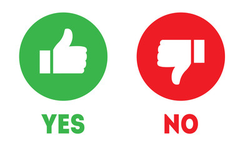
► Compliance: being in principle clear in the powers that the political authority gives or refuses to companies
On May 28, 2021, the Federal Agency published guidelines on how companies could or could not compel their employees with regard to vaccination, with regard to civil rights and freedoms, especially religious freedoms, of workers, especially those who say they don't want to be (➡️📝EEOC, EEOC Issues Updated COVID-19 Technical Assistance, May 28, 2021). The question is to strike a balance between the two.
It is often said that "Common Law" is casuistic and that Civil Law lays down principles. In this health crisis, we can see rather the opposite. American Law, which is very different from British Law, arises from "agencies", which speak clearly and quickly. The assertion is clear and plain. The document is two pages long. The principle is fixed: it is the principle of a power for the company to force to the vaccination. With one exception: the right for a person to request accommodations (undoubtedly teleworking) if this does not place too heavy a burden on the employer. As a result, on June 9, 2021, The New York Times headlines directly and simply on the principle: "yes, your employer can require you to be vaccinated" (➡️📝New York Times, Yes, your employer can require you to be vaccinated, June 9, 2021).
Isn't this always how the "qualities" of "Continental Law" are praised? In times of crisis, proceeding in principle: "authorized / prohibited" then (because any principle supports exceptions) say one or two exceptions, simple and the mode of operation. No more.
More generally, because the public authority must keep the normative authority for itself, it must clearly state what the company has the power to do in principle: yes or no. It is in a second level that it can deploy "Compliance tools", in the political decision thus adopted. In "Compliance by Design", this is essential, because otherwise the company will only be able to invent, under cover of technical casuistry, principles (on this dimension, see Cécile Granier, ➡️📝The normative originality of Compliance by Design, in ➡️📕"Compliance Tools", 2021). And the company, thus left to itself, will have great pleasure and interest in doing so. Who doesn't appreciate to become a Legislator?
June 8, 2021
Compliance: at the moment

► Discuter sur les conditions "équitables" de monétisation des données à caractère personnel efface la distinction entre la personne et les choses, sur laquelle s'est construite le Droit.
Le Droit des données relève du Droit de la Compliance. Il s'ancre donc dans les principes du Droit, sauf à détruire ces principes pour y substituer de nouveaux principes. Pourquoi pas.. On limite parfois la discussion aux "conditions" de la monétisation" des données personnelles : quel prix serait-il équitable de verser pour les obtenir ? Quelles informations donner au vendeur ? Combien de temps l'acheteur doit-il les conserver ? Comment organiser l'intermédiation ? Etc.
Le principe même semble être hors-débat : nos "données personnelles", c'est-à-dire nos vies, donc nous-mêmes êtres humains, seraient donc "monétisables" : en termes plus juridiques, nous serions par principe "cessibles". C'est alors la définition même du Droit qui est remis en cause : car un être humain, en ce qu'il est une personnes n'est pas cessibles.
C'est ce qui le distingue les choses. L'opposition entre la personne et les choses est la distinction fondamentale sur laquelle s'est construit tout le système juridique occidental, Civil Law comme Common Law ( ( ➡️📝Frison-Roche, M.-A., Remarques sur la distinction entre la volonté et le consentement en droit des contrats, 1995). On peut la remettre en cause et faire un ordre juridique nouveau libéré de cette opposition. Dans ce nouveau cadre, l'on peut affirmer que par principe, par "petits bouts", une donnée personnelle étant un petit bout de nous-même, nous pouvons bien nous céder dès l'instant qu'il y a "consentement" (➡️📝Frison-Roche, M.-A., Repenser le monde à partir de la notion de "donnée", 2016). Dans ce qui serait alors une nouvelle base d'un nouvel ordre juridique, le consentement, principe unique, effacerait donc la distinction dépassée de la personne et des choses . En effet, le puissant aurait le pouvoir de dire Oui et/ou de dire Non (définition de la volonté) et le faible aurait le pouvoir de dire Oui sans le pouvoir de dire Non (ce qui est la définition du "consentement" ((sur la notion de "consentement mécanique" : ➡️📝Frison-Roche, M.-A., Oui au principe de la volonté, Non aux consentements purs, 2018).
C'est donc un choix de civilisation que nous avons à faire : de sang-froid, si nous sommes puissants (et donc de fait libres) et que nous balayons la distinction entre la personne et les choses, opposition qui protégeait les personnes faibles, en discutant des conditions de la cession de leur data à des "conditions équitables".
Sommes-nous de sang-froid prêts à le faire ?
C'est une épreuve pour la définition du Droit de la Compliance dans son lien ou non avec la tradition humaniste du Droit : elle peut en sortir renforcée (v. ➡️📝Frison-Roche, M.-A. Les droits subjectifs, outils premiers et naturels du Droit de la Compliance, in 📕 "Les outils de la Compliance", 2021).
June 7, 2021
Compliance: at the moment

► Le Droit de la Compliance, Droit concret, met en son centre des situations concrètes (risques, femme, etc.) et vise des buts monumentaux concrets de nature systémique.
Une étude financière sort pour montrer que les femmes sont statistiquement des "emprunteuses" plus fiables, le risque de non-remboursement étant moins élevé. Continuer à l'ignorer est regrettable alors que les calculs de stabilité des systèmes bancaires et financiers nous mobilisent tant. C'est vrai que depuis des décennies l'on a mesuré ce fait dans les "micro-crédits", en conséquence les pays en voie de développement à l'égard des femmes . Il est étrange que l'on n'ait pas pas songé ni à le mesurer pour les prêts "standard" dans les systèmes financiers "communs" ni à développer les prêts à l'égard des femmes, non par "bonté" pour elles mais par souci de l'efficacité systémique.
Plus généralement, le Droit est encore trop abstrait. C'est regrettable que l'abstraction (un emprunteur = 1 emprunteur) nuise ainsi au Droit de la Régulation bancaire, pourtant avant tout basé sur le calcul des risques et leur cartographie (➡️📝Frison-Roche, M.-A., Dresser des cartographies des risques comme obligation et le paradoxe des risques de conformité, 2021), voire sur la notion même de "banque", centrale de risques pour accompagner un projet entrepreneurial. Mais le Droit de la Compliance récuse l'abstraction pour prendre appui sur ces éléments concrets (risques, femmes) et les buts monumentaux qu'il poursuit sont eux-mêmes concrets (par ex. lutte contre le changement climatique).
S'il est parfois difficilement accepté ou compris, c'est parce qu'une conception plus abstraite, par exemple la compliance comme process, ne revoyant à rien de concret, est plus familière à notre conception traditionnelle du Droit (sur les enjeux de définition, v. ➡️📝Frison-Roche, M.-A., L'utilité pratique d'avoir une définition claire et ferme du Droit de la Compliance, 2021). D'ailleurs, l'on appelle alors celui-ci "réglementation". Mais plus un corps de règles a l'ambition de viser des buts concrets : par ex. prévenir des risques ; les femmes à leur juste place (➡️📝Frison-Roche, M.-A., Par la technique de class action, l'engagement global effectif d'égalité de salaire pourrait être imposé: les droits subjectifs sont bien l'outil premier et naturel de la Compliance, 2021), voulant lutter pour l'environnement. Plus il mérite le terme de "Droit", avec sa majuscule, et non celui de "réglementation".
June 7, 2021
Compliance: at the moment

► Le Droit de la Compliance légitime le pouvoir des opérateurs numériques cruciaux en ce qu'il est requis pour l'exécution de leurs obligations.
Twitter a retiré à Noami Wolf l'accès à la plateforme pour émettre des propos sur le vaccin. Cela est contesté. La contestation va dans deux directions opposées. Soit la protestation se base sur la liberté d'expression, qui justifierait qu'on puisse émettre tout, et que Soit la protestation se base sur la perspective d'opérateurs tout puissants, censurent nos vies et nous gouvernent.
Les deux sont infondées. A suivre le premier, il faudrait laisser émettre tout discours (par exemple le vaccin va tous nous tuer, etc.), se diffusant partout et immédiatement, ce qui peut mener à des troubles sociaux majeurs (➡️📝Frison-Roche, M.-A., Parce qu'il est ex ante, le Droit de la Compliance est le seul adéquat pour lutter contre les discours de haine dans l'espace numérique, 2021). A suivre le second, il faudrait trouver d'autres entités que les opérateurs numériques pour immédiatement arrêter la diffusion de ces messages viraux systémiquement destructeurs : j'attends pour ma part les propositions concrètes.
Concrètement, c'est le Droit, le Droit de la Compliance, qui oblige les opérateur numériques cruciaux, par exemple Twitter, mais aussi Facebook, Google ou Amazon, à opérer en Ex Ante un pouvoir de police sur les contenus, et non leur bon vouloir (➡️📝Frison-Roche, M.-A., La "raison d'être" des entreprises vient renforcer les buts monumentaux de la Compliance; elle ne doit pas les édicter, 2021). Ils sont des "exécutants", qui ne peuvent prétendre au mieux que venir en appui.
Mais ce pouvoir leur est nécessaire afin d'exécuter cette obligation résultant du Droit de la Compliance dont l'objet premier est la protection des personnes (par exemple la haine est un objet du Droit de la Compliance : ➡️📝Frison-Roche, M.-A., La haine devient un objet du Droit de la Compliance car si elle n'est pas nouvelle, son effet est nouveau et appelle cette appréhension juridique nouvelle, 2021).
Car être obligés, c'est aussi d'avoir le pouvoir de mener à bien les obligations que l'Etat de Droit met à leur charge.
Ils le font sous le contrôle de l'Autorité de supervision (en France le Conseil supérieur de l'audiovisuel) et du juge.
Par exemple si la réaction de Facebook, en execution et non pas en "réaction" à la remarquable décision de l'Oversight Board du 5 mai 2021(➡️📝Frison-Roche, M.-A., Par sa décision du 5 mai 2021, l'Oversight Board de Facebook a imposé à celui-ci un programme de compliance, 2021), ne plait pas, il convient de l'attaquer devant un juge.
June 6, 2021
Compliance: at the moment
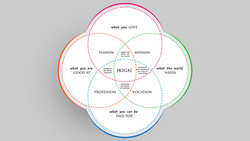
► Compliance, raison d'être et souci de changement du climatique.
Face à ce qui apparaît comme un mur de la fatalité de la crise environnementale à venir, les dirigeants de grandes entreprises insistent sur la nécessité d'actions "concrètes", puisqu'on "sait déjà" qu'il faut faire quelque chose (v. par ex. ➡️🎬 le panel B de la conférence Green Swan 2021). Oui, cette connaissance nous place en Ex Ante, et donc en "Responsabilité Ex Ante v. ➡️🎬 Frison-Roche, Penser la Responsabilité en Ex Ante par le Droit de la Compliance, notamment pour les drames futurs de l'environnement, 2021).
Cela pose la question plus générale, et plus politique, de déterminer qui doit dire qu'il faut faire quelque chose pour que l'évolution négative de "l'environnement" ne continue pas, et qui doit agir pour qu'effectivement cette entéléchie soit brisée. C'est au politique de poser ce "but monumental" mais c'est aux entreprises systémiques de l'atteindre, car elles sont les plus "en position" de le faire, ayant l'ampleur géographique, les moyens financiers et technologiques, la multiplicité des ancrages locaux. C'est le principe même du Droit de la Compliance.
La question est de savoir si les entreprises pourraient elles-mêmes formuler les buts à atteindre. C'est alors non plus prêter leurs forces. C'est prendre un rôle politique. Ce pourquoi Gunter Teubner voient dans les multinationales des "né-constituants" globaux, et le désapprouve (➡️📙Teubner, G., Fragments constitutionnels. Le constitutionnalisée sociale à l'ère de la globalisation, 2016).
La "raison d'être", notion désormais juridique par la loi dite "Pacte" de 2019, le permet-il ? Non si l'entreprise prétend édicter un but pour le futur du groupe social, car ses dirigeants ne sont ni élus ni révocables par les citoyens. Oui, si le but visé a déjà été élaboré par les dirigeants politiques et qu'elles viennent alors en appui, adhérent à celui-ci.
Ainsi, elles peuvent converger dans un but formulé en soutien par une raison d'être qui les renforce dans un groupe social qu'elles intègrent mais dont elles ne sont pas les maîtres.
Contrairement aux Etats-Unis, où l'entreprise peut faire comme sécession parce qu'en tant que "personne" elle pourrait avoir des "opinions" (par exemple religieuses) et les imposer (décision Holly Hobby, 2014, ➡️📝Frison-Roche, M.-A., La cour suprême des Etats-Unis rend l'arrêt du 30 juin 2014 Hobby Lobby: une entreprise peut avoir des convictions religieuses lui permettant constitutionnellement de se soustraire à l'obligation de payer à ses employés une pilule contraceptive, n'est-ce pas aller sur "un champ de mine" que de confondre ainsi organisation et être humain?, 2014), la "raison d'être", ainsi conçue, renforce la puissance politique qui demeure entre les mains du Politique et n'opère pas de transfert. Pour reprendre l'exemple crucial du Droit de l'environnement, ce sont les Autorités politiques qui ont fixé le But, et merci aux entreprises qui viennent en appui, non seulement par l'internalisation de force par le Droit de la Compliance "subi" mais par le Droit de la Compliance "voulu" par la "raison d'être", laquelle devant être ainsi conçue (v. ➡️📝Benzoni, L. & Deffains, B., Approche économique des outils de la Compliance: finalité, effectivité et mesure de la Compliance subie et choisie, in 📕 📝"Les outils de la Compliance", 2021).
Sur ces bases, le Droit de la Compliance est l'alliance entre les Autorités politiques, dans leur légitimité, et les opérateurs cruciaux dans leur puissance, sans qu'ils s'épuisent les uns contre les autres.
#politique #entreprises #raisondetre #environnement
June 5, 2021
Compliance: at the moment

► 200 condamnations pour propos racistes tenus en ligne, c'est bien mais "ce n'est rien". Le Droit de la Compliance est apte à modifier ce "rien".
Laetitia Avia expose que 200 condamnations pour propos racistes tenus en ligne, c'est bien mais souligne que "ce n'est rien" (➡️🎤v. l'interview de Laeticia Avia sur Public Sénat): une nouvelle loi (en cours de vote) est donc nécessaire. Les condamnations judiciaires Ex Post sont absolument requises. Mais elles ne suffisent pas. Parce que non seulement 200 par rapport à la masse considérable des milliers de propos racistes, parmi les propos haineux de toutes sortes, c'est infinitésimal.
Mais surtout parce que l'espace numérique est un espace de diffusion : une fois émis, le propos se diffuse immédiatement et partout.
C'est donc dans ce qu'est souvent appelé souvent "régulation", c'est-à-dire l'Ex Ante, qu'il faut trouver une solution. Les législateurs, français et européens, vont dans ce sens.
Cette Régulation des propos haineux, son "effectivité", c'est-à-dire faire en sorte que la prohibition ne soit pas réduite à "rien", repose sur l'action avant l'émission du propos de haine, donc sur l'Ex Ante : elle doit donc être internalisée dans l'organisation en position d'agir à ce moment-là. Ce sont donc les opérateurs numériques.
La Régulation des propos racistes, et plus largement des propos de haine, prend donc techniquement la forme du Droit de la Compliance (➡️📓 v. Frison-Roche, M.-A., rapport "L'apport du Droit de la Compliance pour la Gouvernance d'Internet", 2019, montrant que le modèle est celui de la Compliance bancaire).
Pour cela, il faut à la fois accroître les pouvoirs des entreprises qui structurent l'espace numériques (Facebook, Google, Amazon, etc.), car l'on ne peut remplir ses obligations si l'on n'a pas les pouvoirs pour ce faire, et accroître les pouvoirs de l'Autorité publique qui les contrôle car l'on ne peut admettre que la population soit gouvernée par ces entreprises : par le Droit de la Compliance, l'Autorité publique de Régulation devient une Autorité de Supervision (sur le modèle de la BCE).
C'est notamment ce que devient le Conseil supérieur de l'audiovisuel.
Par cette évolution du Droit de la Compliance, liée à la garde de l'Etat de Droit, le pouvoir des entreprises, y compris non-européennes, est ployé pour servir la protection des personnes, sous le contrôle immédiat de l'Autorité de Supervision (modèle bancaire) et le contrôle final d'un juge, toujours plus puissant.
#compliance #droit #contrôle #loi #numérique #banque #régulation #juge
June 4, 2021
Compliance: at the moment

► Compliance et "numéronasse": le grand choix.
La "numéronasse" remplace la paperasse : c'est bien vu et bien nommé. Yannick Meneceur approuve cette étude de Florence Maraninchi. Elle soutient que ceux qui construisent les plateformes pour tout simplifier et tout résoudre se contentent de remplacer la paperasse par la "numéronasse". Oui, qui ne vit celle-ci l'enfer de cette gestion des codes (souvent volés contre rançons, par ailleurs mais cela est une autre histoire ...).
Plus profondément, cet engouement vient de l'erreur de dénomination consister à nommer les machines "intelligentes". Les voitures roulent : on ne les disait pas "intelligentes", qu'elles "savaient" rouler. On les dit aujourd'hui "intelligentes" parce qu'elles sauraient être "autonomes" par le traitement d'informations de contexte par de la technologie, constatant rétrospectivement qu'elles roulent plus vite que ne vont les chevaux et calculent désormais plus vite que les humains. Elles seraient donc plus "intelligentes" que tout le monde. L'on comprend que les marchés déversent tant d'argent sur Tesla...
Mais les machines ne sont pas "intelligentes", le calcul ne fait pas le projet, comme le développe Alain Supiot dans "La gouvernance par les nombres".
Si l'on continue, puisqu'un algorithme a déjà réussi un examen d'entrée à l'Université, un autre sortir d'une "école de droit", l'un nous condamnera (c'est déjà fait), l'autre nous défendra (cela viendra). Les humains devront se taire. Devenus machines, ils n'auront pas droit à la parole. La guerre juridique des qualifications est en cours, mais cela est une autre histoire.
Cette "numéronasse" a déjà atteint le Droit de la régulation : la "régulation par la donnée" prétendue faire sortir la règle de l'accumulation des "normes" mises en corrélation par la machine, sans décision humaine : moins il y a d'humain, moins cela serait "discrétionnaire". La destruction des marges de discrétion serait une victoire. Surtout pas de politique... ; surtout pas d'humain ... La "Compliance by design" porte aussi ce rêve de la "machine juste", puisque non faillible : v. ➡️📝 Samir Merabet, La morale by design, in ➡️ 📕 Frison-Roche, M.A., "Les outils de la Compliance", 2021) Si nous voulons une Compliance humaniste, il faut écarter cela. Et avec force. Les outils de la Compliance, si puissant, doivent servir une conception humaniste de la Compliance, et pas l'empire de la "numéronasse" (v. ➡️📝Frison-Roche, M.A., Un droit substantiel de la Compliance, appuyé sur la tradition humaniste de l'Europe, in ➡️ 📕 Frison-Roche, M.A., "Pour une Europe de la Compliance", 2019).
#droit #compliance #humanisme #intelligenceartificielle #régulation #données
June 3, 2021
Compliance: at the moment

► Régulation des plateformes: quel degré d'abstraction le Droit doit-il insérer dans les qualifications?
La dispute fait rage devant juridictions et parlements de tous les pays pour savoir si les plateformes sont les employeurs de ceux qui répondent à l'application qu'elles ont conçue ou si ceux qui travaillent grâce à elle sont des indépendants. Les décisions varient. Dans le cas "Take it easy", la Cour de cassation le 28 novembre 2018 a vu un salarié ; mais la Cour d'appel de Paris dans son arrêt du 7 avril 2021 vient de voir un indépendant. A lire les commentaires, l'on est proche de la bataille d'Attali.
L'un n'a pas "raison" et l'autre n'a pas "tort" : parce que ce n'est pas une affaire technique d'application de règles, est à l'oeuvre l'art politique de la "qualification" qui abstrait plus ou moins les faits pour les classer dans la catégorie qui envoie ses faits dans le régime juridique approprié.
Ainsi un colloque vient de prendre comme thème : les "coursiers". C'est une façon politique de qualifier : au plus près des faits. Tandis que les entreprises numériques adoptent une façon politique de qualifier au plus près de l'abstraction : elles n'évoquent que la "plateforme", les "marchés bifaces", etc.
L'effet produit, parce que recherché, est opposé. Si l'on qualifie au plus près des faits, l'on voit la situation avec un coursier sur un vélo, le temps qu'il fait (il pleut, ou il fait chaud, etc.), la durée requise "faire la course", le poids de ce qu'il ou elle porte (une lettre, ou un repas complet), où il ou elle roule, etc. Et cela produira l'arrêt Take it Easy, pourtant rendu par la Cour de cassation, mais parce qu'ayant "vu" cela elle veut que celui qui ne peut travailler que par l'appli de l'entreprise technologique est à la chaine et et doit en échange de sa subordination être nourri régulièrement.
Les qualifications formées par l'entreprise sont des abstractions. Le tiers qui recourt à sa technologie pour accéder à son seul client, qui attend son repas (auquel la plateforme est étrangère), n'a pas de lien avec elle. Il est indépendant. Par Compliance éthique, elle prévoit de lui donner quelques "droits" mais pas la sécurité dans le temps qu'est la "petite loi" du contrat.
Cette qualification abstraite a l'avantage de ne pulvériser pas le Droit dans mille règles : pour montrer que le Droit économique ne doit pas prospérer, Vedel disait qu'il ne faut pas faire autant de règles qu'il y a de faits, qu'il ne faut pas de "Droit du cheval".. (cheval et coursier...).
Le Droit de la Régulation est une branche concrète et politique. Puisqu'il faut "réguler" les plateformes, quelle ampleur d'abstraction convient-il d'appliquer au réel (car il ne peut pas rester dans l'infini du concret) pour que le Droit soit juste ? La Haute Juridiction aura le dernier mot.
#droit #régulation #abstraction #travail #justice #plateformes #compliance #juge
June 2, 2021
Compliance: at the moment

► The European Public Prosecutor's Office (EPPO), a major weapon for the Compliance Law.
The European Union's prosecutor comes out of its cradle : the "European Public Prosecutor's Office" starts its activities. Long to set up, this European judicial body is linked to delegated prosecutors in the Member States. It is not a simple emanation of national bodies networked; of autonomous competence, it is the organ in the name of which the action is carried out.
In addition to this institutional revolution, there is a substantial revolution: this European Public Prosecutor's Office can prosecute any attack to the "financial interests of the European Union". These "attacks on financial interests" are conceived broadly, including in particular acts of corruption or embezzlement.
First of all, Didier Reynders emphasizes that this puts the rule of Law at the center. It is no longer Europe supporting actions to be coordinated between States, the national prosecution having technical difficulties to cooperate effectively with each other, but the European Public Prosecutor's Office which will allow unified and effective European action between delegated prosecutors.
Secondly, it continues the string of effectiveness between Compliance, located in Ex Ante, Compliance Law consisting in "preventing" and "detecting" such behavior, and the Ex Post, because a judge is sometimes necessary so that the disregard of these Ex Ante obligations is sometimes sanctioned (➡️📝Frison-Roche, M.-A., Compliance and International Public Order: the French conception preserved by the Paris Cour of Appeal, 2021) but also a prosecution: the prosecutor is a major figure in Compliance Law. Indeed, being able to prosecute, the prosecutor can also not prosecute and change its decision to close the file in returns for commitments (Ex Ante) from the company: the "public interest judicial agreements" - CJIP. In fact, through the opportunity to prosecute, will such powerful flexibility be found at European level?
Thirdly, the prospect of prosecution by the European Public Prosecutor's Office will incent in Ex Ante companies to prevent, or to prosecute themselves (➡️🎤Frison-Roche, M.-A. et Roda, J.-C. (dir.), The firm instituted prosecutor and judge of itself by Compliance Law, Lyon, June 23, 2021) the perpetrators of fraud in the interests of the Union European.
At a time when the Union is engaging in direct loans to lend still more, this role of the company, sometimes qualified as "private prosecutor", linked to a prosecutor, now European, is necessary.
Are we moving towards the alliance of all prosecutors?
June 1, 2021
Compliance: at the moment

May 31, 2021
Compliance: at the moment

May 30, 2021
Compliance: at the moment
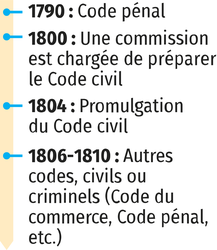
May 29, 2021
Compliance: at the moment
